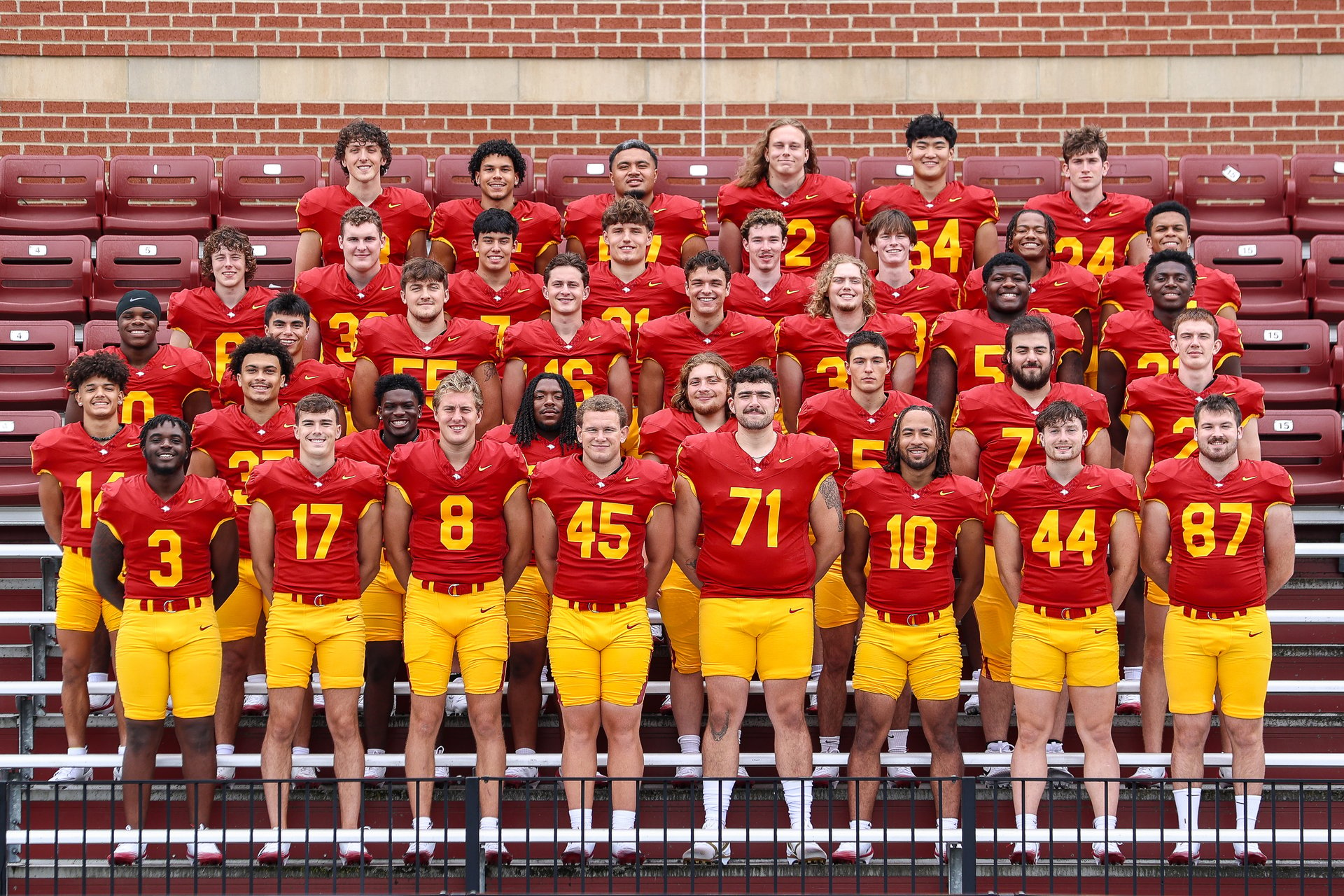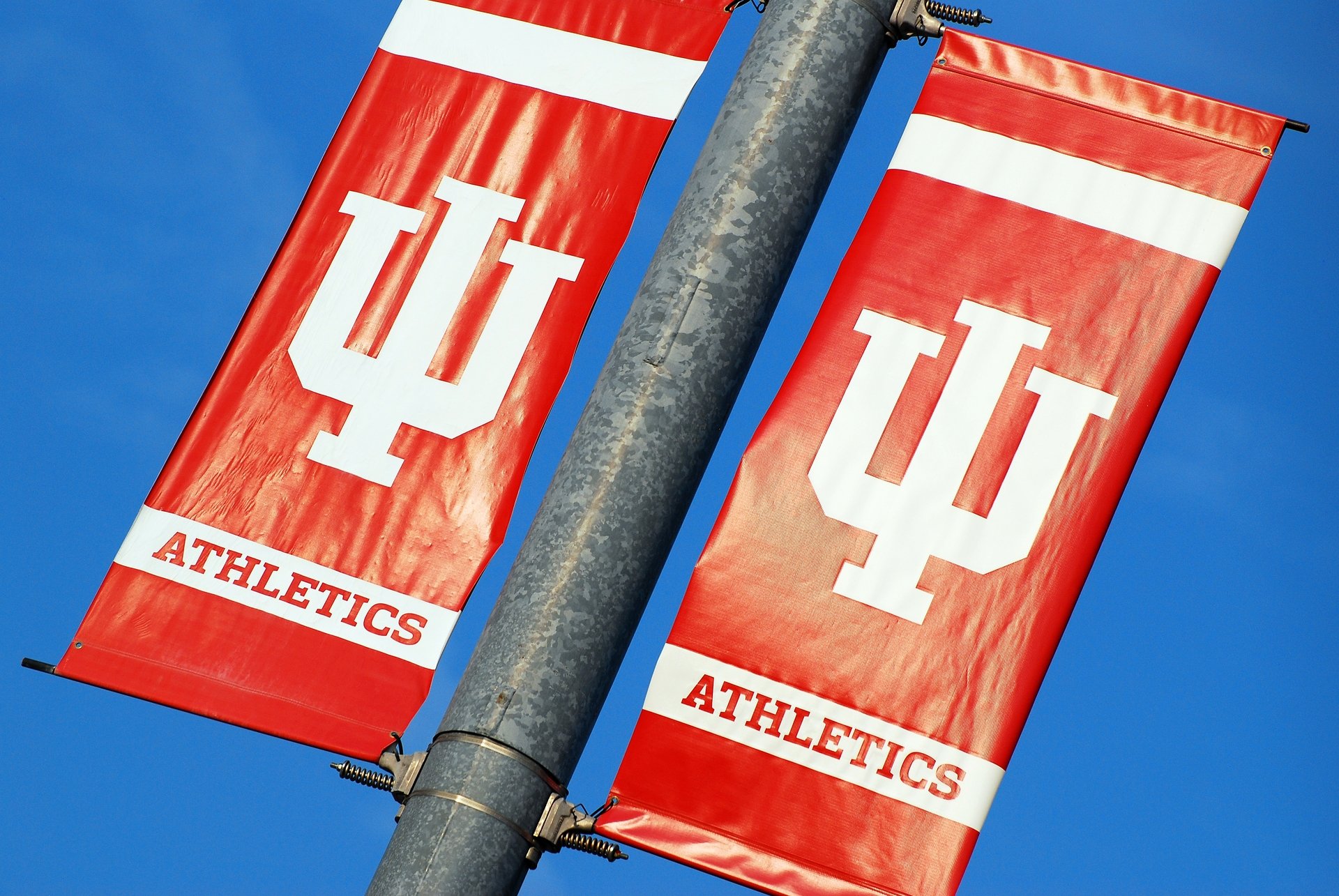Good morning!
I believe my conversation with Sean Rameswaram at Vox’s Today Explained should be up today. We discussed the history of the NCAA, amateurism, why the fight over likeness rights is happening now, and what might come next. I have a few expert interviews lined up for next week on Extra Points to help advance this conversation even further, if you’re interested.
But for today, I’d like to talk about something else.
This is a pretty packed weekend for college football. We’ve got some of the biggest, most meaningful pre-Thanksgiving rivalries (Florida-LSU, Texas-Oklahoma, Florida State-Clemson, etc.) all in one week. If you’re dying for teams with numbers in front of their names to finally play other teams with numbers in front of their names, or at least teams you’ve heard of, this is your week.
But I wouldn’t sleep on the significance of another game, featuring two teams about as far removed from the national conversation as you can get right now. At 2:30 PM God’s Time Zone, BYU will travel to Tampa to take on South Florida.
The on the field implications here are minimal. BYU is hoping to ride a much easier backend of their schedule to back into the Hawaii Bowl. South Florida is just looking to beat an FBS opponent not named UConn for the first time in almost an entire season, and maybe keep their coach from getting fired. Both teams are banged up. It will probably be an ugly and stupid game. Whoever wins is not going to feel that much better. Whoever loses is going to feel terrible.
But that’s not why this game is interesting to me.
Because of an injury to regular BYU quarterback Zach “The Mormon Manziel” Wilson, backup Jaren Hall will get the start for the Cougars. This will make Hall the first African-American quarterback to ever start for BYU.
Whenever I’ve seen the Salt Lake Tribune or the Deseret News mention this story online, I’ve seen a ton of folks respond with why does this matter, why do you gotta bring race into it, he’s just a quarterback, etc. After all, it’s 2019! How meaningful could this possibly be?
If I may….I think this is a really big deal.
Or at least, to some people. Maybe it isn’t as big a deal to the rest of the country. After all, virtually every FBS program, at this point, has started at least one African-American quarterback. And while African-Americans who play that position still certainly face discrimination, or at least racially-tinged criticism (just check out what anonymous NFL Draft scouts say almost every offseason about any black college QB…about how they should switch to WR, or that they aren’t cerebral enough to break down NFL defenses, etc. The dudes who get those embarrassing Wonderlic scores leaked? They don’t usually look like Daniel Jones). I think it’s fair to say the football world has moved on a bit from where they were in the 1960s. An African-American, in it of itself, playing QB at the FBS level is not rare.
But BYU isn’t virtually every other FBS program. As Deseret News reporter Jay Drew noted, the famous Black 14 protests against BYU happened almost exactly 50 years ago. I did an entire podcast on them, and how they impacted Wyoming and BYU for years to come. While the school and the sponsoring church no longer hold the discriminatory theology that they did back in the 1960s, it still probably isn’t the easiest campus in the world to be a non-white guy, especially if you’re also not LDS.
Provo, where BYU is located, has an African-American population of less than 1%. The school’s black population is less than 1%. The LDS church is more diverse and more global than ever, and Utah itself is becoming more diverse…but this is still one of the most PWI of any PWI in FBS football.
And that’s why having visible role models who differ from that mold are important.
I’ll tell y’all a little story. I’m LDS myself. I grew up in Licking County, Ohio, which during the 1990s, would have barely been considered Columbus suburbs. It was exceptionally white, and as you’d probably expect, didn’t have much in the way of other religious minorities. There were probably only a little more than a dozen other Mormon kids my age spread out across the whole county.
My mother was born in São Paulo, Brazil, and didn’t become an American citizen until I was in high school. We were big honkin’ Liberals in a part of the country that…did not always welcome those sorts of ideologies. So I was pretty aware, even as a kid, that my family was different. Other than an exchange student who visited our school when I was a Junior, I’m not sure that I met another Brazilian I wasn’t related to until college. I didn’t meet another Brazilian Mormon until I went to the MTC.
One thing that made being the only whatever a little less lonely? Looking for, and noticing, potential role models. It seems stupid to admit in public that at one time I was really glad Harry Reid existed, but for teenage, very politically active me, he was a huge deal. He was proof that a Mormon could exist outside the traditional Utah/OG Pioneer narrative and function in politics, especially as a Democrat. Seeing LDS athletes, or entertainers, even if I didn’t really love their music or teams, mattered to me.
And we loved, LOVED, Anderson Varajao. Another Brazilian who loved Ohio! Who cares that he looked like Sideshow Bob and couldn’t shoot? Doesn’t matter. He was our cousin.
I know that I wasn’t the only person who looked for public figures that we thought, in some way, resembled us, that proved that somebody like us could make it out there. Hell, *I’ve* gotten DMs from Mormons saying that I’ve been that sort of figure for them. And I’m not even the most famous Matt Brown who writes about college football!
That’s a long way of saying, I guess, that I guarantee that there is going to be a kid out there, blessed with more melanin than Jimmer Ferdette, noticing that suddenly, BYU has a quarterback that looks like them, and that is going to bring that kid some comfort, especially if that kid is growing up in an environment where there aren’t as many kids like him around.
It matters that BYU is coached by a non-white guy, and has plenty of non-white guy assistants. It doesn’t mean that a school should hire less-qualified individuals to fulfill some racial quota, or they should start players who aren’t good enough, just to check a box. That would not be fair or smart.
But those identities matter. We can’t just shrug and say we don’t see color, or we don’t acknowledge religion, because then we’re ignoring what makes other people…other people. Seeing, acknowledging and trying to understand a person’s racial identity isn’t racist. It’s part of understanding our humanity.
I think this is all cool. I think these firsts are meaningful and important wherever they happen. When you’ve never had to look for somebody like you somewhere else, because you can see people like you all the time, maybe you can take those firsts for granted a little bit. But I promise you, they’re noticed, and they’re celebrated.
That’s part of what can make college football cool, and bring communities together. Maybe I’m noticing this one a little more because it involves a community close to my heart. But I know a little bit about what it’s like to be a different kind of Mormon, or have a different background from the other people in your neighborhood.
Seeing somebody else a little different succeed? Well, as the kids say,
You love to see it.
Anyway, thanks for reading and supporting Extra Points. If you enjoyed this, or previous editions, why not subscribe? It comes twice a week, and it’s totally free. You can send questions, comments, feedback, concerns, interview and topic requests and more to [email protected], or @MattSBN on Twitter. And if you’re a graphic designer and would be interested in whipping up a little Extra Points logo, I’d love to pay you for it. Slide into my DMs.

















